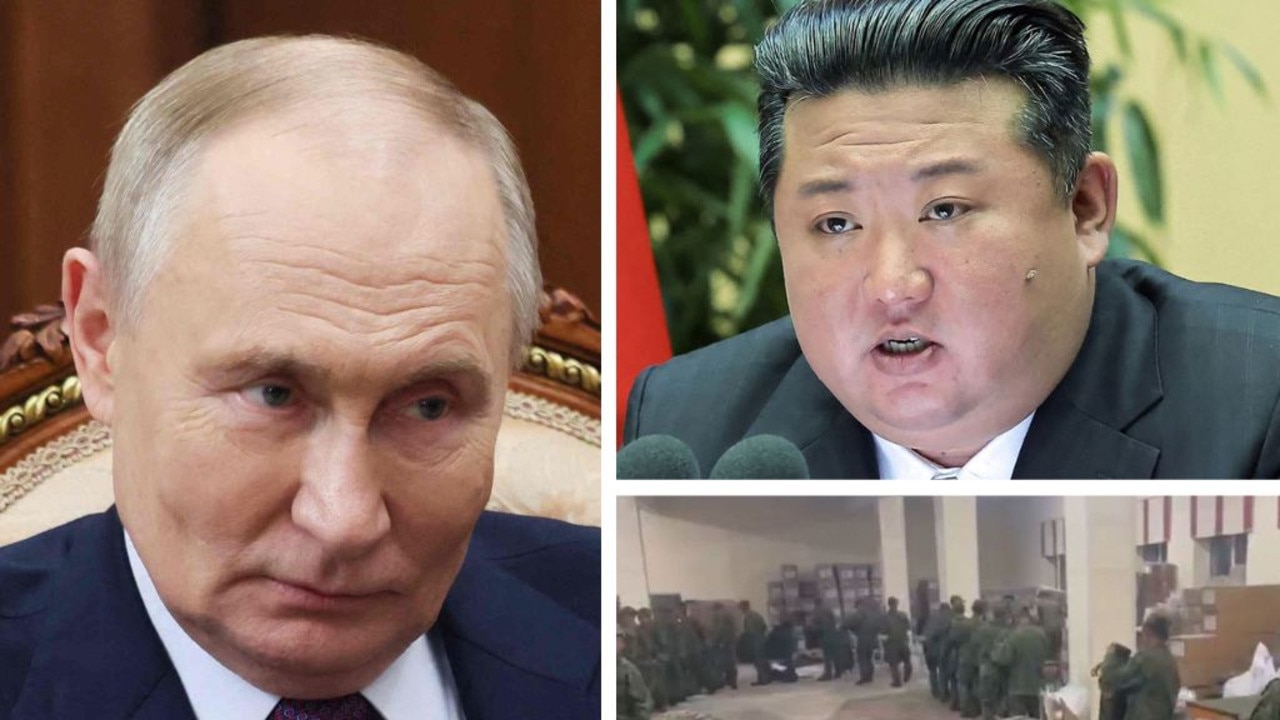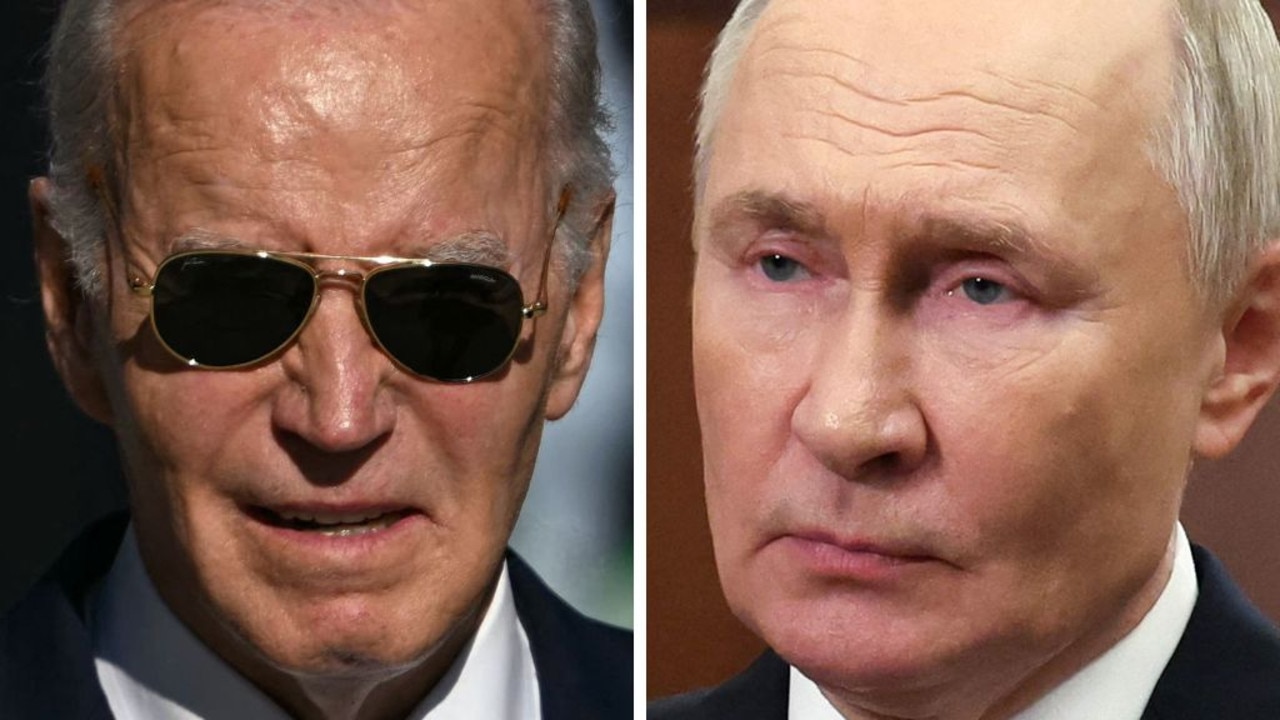Boris Johnson defends Covid ‘let it rip’ strategy and lockdown parties
Boris Johnson claimed there was ‘nothing more’ he could have done to prevent the lockdown-breaking parties that led to his ouster as UK Prime Minister.
Boris Johnson said he couldn’t have prevented the “Partygate” scandal that led to his ouster from Downing Street, while defended his “let it rip” decision to delay a national lockdown during the UK’s second wave of Covid.
Facing an inquiry into his handling of the pandemic, the former prime minister said the strategy of letting the virus spread naturally through the population while shielding the vulnerable was being suggested by “plenty of people”.
Johnson added “there were question marks” about how effective a nationwide “circuit breaker” lockdown would be as infection levels rose in late 2020.
“The virus was not evenly distributed across the country and that’s the key thing,” he said.
“Circuit breakers is a glib phrase, it actually means an immensely difficult, costly exercise which falls hardest on the poorest and neediest in society.”
Johnson claimed the regional approach had helped bring down infection rates, but that the arrival of the so-called Alpha variant shortly afterwards demanded further national lockdowns.
Johnson — forced from office last year over Covid lockdown-breaching parties held in Downing Street — accepted “mistakes” had “unquestionably” been made but repeatedly insisted he and officials did their “level best”.
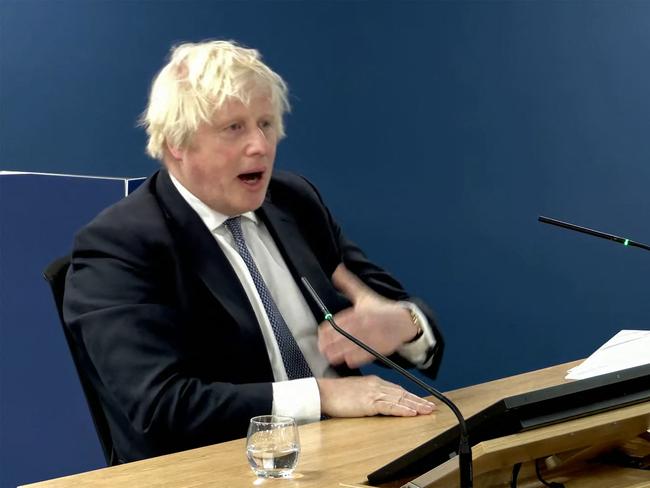
Asked why he didn’t stop the gatherings inside Downing Street, Johnson said there was nothing more he could have done.
He did, however, admit he could have instructed everyone to “be mindful of the rules and how things would appear”.
“I think that the trouble was, as I said, that people were working extremely hard in tough circumstances,” he says.
His grilling began with questions about failing to provide about 5,000 WhatsApp messages from late January 2020 to June 2020.
“I don’t know the exact reason,” he claimed, adding that the app had “somehow” automatically erased its chat history from that period.
Johnson’s understanding of specialist advice was doubted last month by his former chief scientific officer, Patrick Vallance, who said he was frequently “bamboozled” by data.
His former top aide Dominic Cummings and communications chief Lee Cain both criticised their ex-boss when they gave evidence at the inquiry.
Current Prime Minister Rishi Sunak, who was finance minister during the pandemic, will face the inquiry next week.
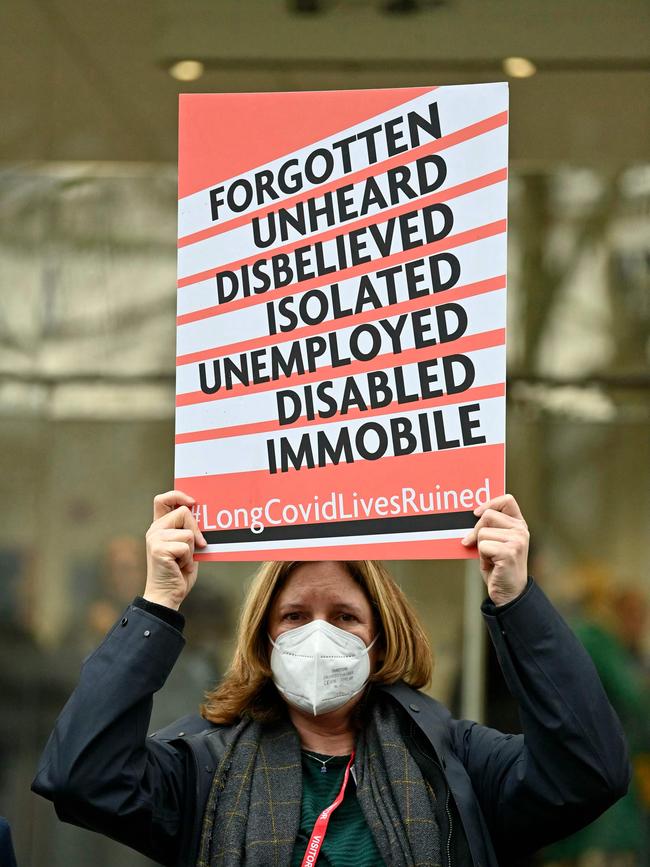
BORIS BOOED AT COVID INQUIRY
Boris Johnson arrived three hours early at the Covid Inquiry to give a second day’s evidence on his handling of the pandemic but did not escape being booed by baying crowds of bereaved families.
The former prime minister walked into Dorland House wrapped up in a heavy coat and woolly hat just after 7am on Thursday, to find jeering protesters holding up placards gathered outside the building.
Partygate, the scandal over rule-breaching gatherings at No. 10 during the pandemic that marred Mr Johnson’s tenure, is expected to feature in today’s proceedings.
Victims’ families will also be given another chance to read out impact statements.
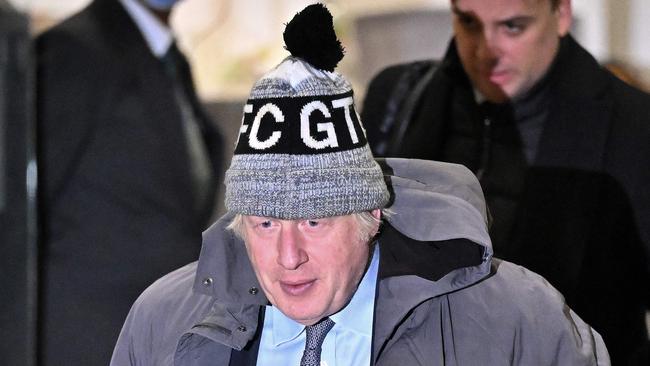
On Wednesday, Mr Johnson became tearful as he recounted the “tragic, tragic” events of 2020 and told bereaved families he was “deeply sorry” for the loss of life, the pain and the suffering that the pandemic caused.
He also apologised for remarks he had written in his mobile phone notes about long Covid, in which he called the condition “b-------“ and compared it to Gulf War Syndrome.
“The words that I described in the margins of submissions about Long Covid have obviously been now publicised and I’m sure that they have caused hurt and offence to a large number of people who do indeed suffer from that syndrome, and I regret very much using that language and should have thought about the possibility of future publication, and I regret it very, very much.”
He later defended his description of the virus as Gulf War Syndrome, saying that while he meant “no disrespect to Long Covid patients”, “there are also people who think they may be suffering, I think this is now accepted, from something associated with the Gulf War.
“So what I was trying to say was – where is the line, and please can someone explain to me what this is?”
On Wednesday Mr Johnson was loudly booed as he left the inquiry by grieving families holding placards that read: “The dead can’t hear your apologies.”

He told the Inquiry the first national lockdown was built on an “uncertain foundation” and called for extensive research on the long-term impact of lockdowns and was confronted over expletive-ridden WhatsApp messages sent between ministers, officials and advisers at the heart of government.
Incredibly, the inquiry was told how he had asked scientists whether people could kill Covid by using a “special hair dryer” up their nose.
The claim was among several made by Mr Johnson’s former top aide Dominic Cummings in his witness statement to the inquiry.
He also alleged Mr Johnson would rather “let the bodies pile high” than have the economy hit by any further restrictions.
The former UK leader — who came under attack from ex-aides for his alleged indecisiveness and lack of scientific understanding during the pandemic — told the inquiry he took personal responsibility for all decisions made.
Answering questions about lockdown, former health secretary Matt Hancock and the “toxic” culture in 10 Downing Street, Mrs Johnson rejected statistics that Britain fared worse than European neighbours and argued “every country struggled”.

He said that his expletive-ridden WhatsApps were a “creatively useful” tool at the height of the Covid pandemic as he denied deleting thousands of messages.
The former prime minister said that similarly “fruity” exchanges of views would have happened face-to-face during the Thatcher and Blair administrations before the era of text messaging.
He also said multiple accusations of incompetence made about him by ministers and senior advisers during the pandemic were “to be expected” in such a high-pressure environment.
He also said the British government “underestimated the scale and pace of challenge” from Covid – thinking the worst would come in May or June.
He denied he was on holiday over the half-term break in February 2020, a claim made by former aide Dominic Cummings.
The first day of the former prime minister’s evidence, which was besieged by protests, saw him defending the culture in No 10 after it was branded “toxic” by other witnesses.
Challenged over the slow response to the crisis, Mr Johnson said Whitehall “underestimated” the need for action, adding that it was only when he saw the “horrors” of the outbreak in Italy that he realised the seriousness of the virus.
He suggested the experience of previous diseases such as SARS, MERS and swine flu clouded officials’ judgement while a coronavirus pandemic was “outside our living experience”.
Defending his decision to order England’s first lockdown on 23 March 2020, he said by the middle of that month he was giving arguments against restrictions “pretty short shrift”.
“I no longer had the luxury of waiting. It was over,” he told Baroness Heather Hallett’s inquiry.
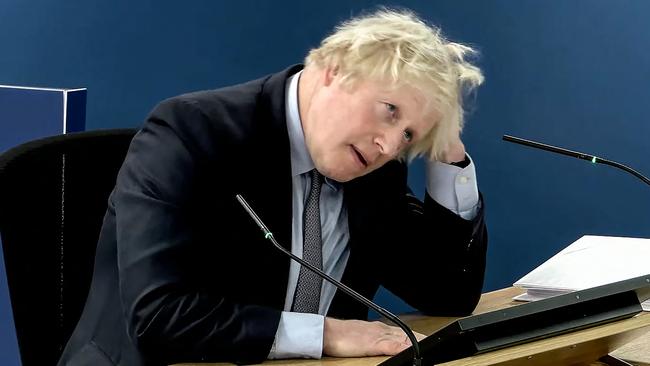
On Wednesday, it was revealed Mr Johnson asked scientists whether people could kill Covid by using a “special hair dryer” up their nose.
The explosive claim was among several made by Mr Johnson’s former top aide Dominic Cummings in his witness statement to the inquiry.
He also alleged Mr Johnson would rather “let the bodies pile high” than have the economy hit by any further restrictions.
But the former UK leader — who faced a barrage of criticism from ex-aides for his alleged indecisiveness and lack of scientific understanding during the pandemic — admitted he takes personal responsibility for all decisions that were made.
Mr Johnson also apologised for “the pain and the loss and the suffering” caused by the Covid-19 pandemic but defended his government’s handling of the crisis.
“Can I just say how glad I am to be at this inquiry and how sorry I am for the pain and the loss and the suffering of the Covid victims,” Mr Johnson said.
Four people stood up in court as he spoke, holding signs saying: “The dead can’t hear your apologies,” before being escorted out by security staff.
The ex-PM, who was forced from office last year over Covid lockdown-breaching parties held in Downing Street, admitted he “underestimated” the threat of the virus and “should have twigged” once it gripped it Italy.
“Inevitably we got some things wrong,” he said, noting he took personal responsibility for all the decisions made.
“At the time I felt … we were doing our best in very difficult circumstances.”

But bereaved families appeared unimpressed by Mr Johnson’s apology.
“We’ve had nearly four years now of rule-breaking, partying, making the wrong decisions,” Kathryn Butcher, 59, whose sister-in-law died of Covid, said.
Another woman held a sign that read: “Boris killed my husband.”
Nearly 130,000 people died with Covid in the UK by mid-July 2021, one of the worst official per capita tolls among Western nations.
Mr Johnson, whose lengthy written submission to the inquiry will be published, insisted his government’s “overwhelming priority” had been protecting the state-run National Health Service (NHS) and saving lives.
He rejected statistics that Britain fared worse than European neighbours and argued “every country struggled”. Johnson was also quizzed about shaking hospital patients’ hands in early March 2020 to delaying the country’s first lockdown for weeks.
“I shouldn’t have done that, in retrospect, and I should have been more precautionary,” Mr Johnson conceded of the handshakes, adding he should also have stopped sports events sooner.


He added the eventual March 23, 2020 lockdown stemmed from “the sudden appreciation” that the virus was more rampant in Britain than previously thought.
“We were clearly wrong in our estimation of where the peak was going to be,” Mr Johnson said.
“Once we decided to act, I think it was pretty fast from flash to bang.”
UK Prime Minister Rishi Sunak, then finance minister, will also face the inquiry in the coming weeks.
– with AFP
More Coverage
Originally published as Boris Johnson defends Covid ‘let it rip’ strategy and lockdown parties



